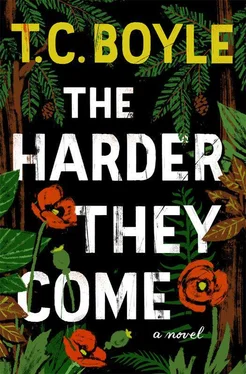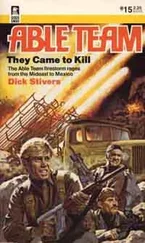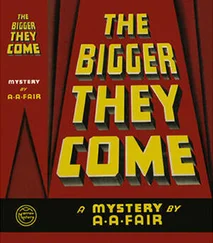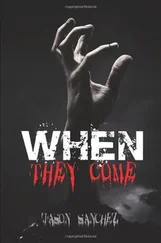They sat there for three and a half hours, him running to the bathroom every ten minutes and her paging through the magazines that were two years out of date and so encrusted with filth she’d be lucky if she didn’t get tetanus or something just from touching them, until, finally, they called his name and he went into the back room with the nurse and she watched the clock and got angrier by the minute. Or not angry, exactly. It was more like disappointment. She didn’t want to be here with the screaming babies and the old men with the bloody bandages wrapped around their bleached-out skulls and the illegals so sick with whatever it was they were like walking bags of infection. No, she wanted to be home. In her own house. With Kutya. And Adam.
Forty-five minutes more — they had to run his stool sample under the microscope to confirm the diagnosis he’d already made, and yes, it was giardia, very common in these parts, and that was the danger of drinking unchlorinated water, even from the purest-looking mountain stream — and then he was walking right by her in the waiting room as if he didn’t recognize her, locked in one of his trances, and she scurried across the room to catch up with him and take him by the arm and lead him out the door and into the parking lot. And that was where things got interesting.
Because there, right in front of them, pulled up neatly to the curb and with its gumball machine idly spinning, was a police cruiser, just sitting there, the engine running and the gasoline the wage slaves had paid for — she’d paid for — cycling through it and spewing out the tailpipe as carbon monoxide to pollute the atmosphere even more than they’d already polluted it. There was no one in the cruiser. No one in sight. And what she was thinking, despite Adam and her hurry to get home, was that a chance had presented itself to her out of nowhere, a chance to get back at them, if not to get even, because she’d never get even. Adam walked right by it, the prescription they’d given him clutched in one hand, the bag of shit in the other, and why he didn’t just dump it she didn’t know.
“Adam,” she called. “Adam!”
He stopped, turned, gave her that maddening look as if he’d never seen her before in his life.
“Why don’t you get rid of that bag — there, in the trash receptacle.” She’d come up even with him now, the pavement like a dark lake spreading open before them. “Come on,” she said, “snap out of it,” and he let the bag drop from his fingers, where it would lie undisturbed till the gardeners came in the morning with their rakes and blowers.
“Yeah,” he said vaguely. “Okay, yeah.”
“Listen,” and she pulled in close to him, lowering her voice, “there’s something we got to do. It’ll take like sixty seconds, that’s all. Can you drive?”
He shrugged, an elaborate gesture under the yellow glaze of the streetlamps along the walk. Then he grinned, or tried to. “What you got in mind?”
What she had in mind was very simple, nothing as complex or radical maybe as what a Jerry Kane would have come up with, but a plan nonetheless: she was going to fuck up that cruiser, whether it was the one the lady cop had used to cage her up in or not, and she was going to do it by putting something in the gas tank and destroying the engine so that when the cop came out of the hospital he — or she —would be going nowhere. But what? Dirt? Sand? Or no, and now the solution came to her fully formed: sugar water. It just happened that in the backseat of the car was a present she’d got at the hardware store for Christabel, a kiss-and-make-up present. A hummingbird feeder. Christabel had been commenting on the hummingbirds last time she was over, the two of them sitting out on the porch and watching them hover and feed and shear off again, as greedy as vultures, and when she saw the feeder on sale at the hardware store she bought it and then went home and made up the sugar water, one cup sugar to four cups water, and left the thing in the back of the car so she wouldn’t forget it when they got together again.
All right. She didn’t know the mechanics of it, but she’d heard this was a good way to really fuck up an engine or maybe even blow it up if that was possible, and why not? They’d screwed her over enough, that was for shit sure. She and Adam had reached her car now and she steadied herself a minute before unlocking the door and handing him the keys. Giving the parking lot a quick scan to be sure no one was watching, she pulled open the back door and reached in back to unscrew the cylinder from the feeder. “Listen,” she said, straightening up and looking him in the eye to be sure he was with her, “just start up the car and wait here — just wait, and no craziness now — till I get done with that cop car over there, and then I stroll away and you pull up and we drive out of here, easy as you please.”
He got into the car, inserted the key, turned over the engine.
“Then,” she said, “we go back home.” She paused, leaning in the window to reach out and touch him on the shoulder — she was always touching him, she loved to touch him, to put her imprint on him, her skin to his.
“Cool,” he said.
And then she was striding briskly back up the walk, pressing the glass cylinder close to her body on the side away from the hospital with its lights and windows and the patients in their beds there who might or might not be looking out on the parking lot. Anyone seeing her would assume she was going to her car or heading back into the emergency room because she’d just gone out for a breath of air — or a smoke, a verboten smoke — and here was the cruiser, still running, the light atop it still revolving, and she was right there, her fingers working at the metal flap of the gas tank, thinking it must be locked, they’d have to keep it locked or everybody’d be doing this all day long, the shits, the pathetic wasteful cruel inhuman shits, only to find that it was true — it was locked and it wouldn’t give. A quick look around: nothing, nobody. The gumball machine chopped up the light. Her heart was pounding. In the next moment she slipped around to the driver’s side — gliding, flowing as if she were made of silk — cracked the door and reached in to run her hand over the dash, and where was it, where was the release? On the floor. Yes, on the floor. Then she had it and it gave and she was back around the car again — thirty seconds, that was all it took. And every gurgling ounce of the sugar water, every drop, went home, right into the greedy gullet of that cage on wheels, that tool of the oppressors that was a tool no more.
Let them suck on that. See how they liked it.
Adam was all right behind the wheel — no Dale Earnhardt, but fine just the same. He kept the car between the lines and he didn’t go over the speed limit though he couldn’t seem to stop laughing. “Just wait,” he kept saying, snorting with laughter, “just wait till they, what, go to nail somebody, and the engine seizes up on them. That was great. That was genius.”
It was. It was great. She’d gotten her little bit back and she’d got Adam back too. They went home and went to bed and he couldn’t get enough of her, hard and hot and sweating in the dark, her man, her beautiful man. He’d missed her. And he didn’t have to tell her, not in words, because she could feel it, oh, blessed lord, yes, feel it all night long.
But then — and she wasn’t surprised or at least that’s what she told herself — she woke to daylight poking through the blinds and the bed was empty and the house too. She didn’t have to go out into the hallway and look to see if his pack was there or run barefoot out the back door to watch for him in the field across the way. He was gone and she knew it, vanished like smoke, human smoke, as if he wasn’t made of flesh at all. But he was, oh yes — flesh and bone and hard unyielding muscle — and she knew that better than anybody. He should have stayed — she’d wanted him to and would have told him as much if she’d had the chance — but he had his own agenda, doing whatever it was he did out there in the woods.
Читать дальше












